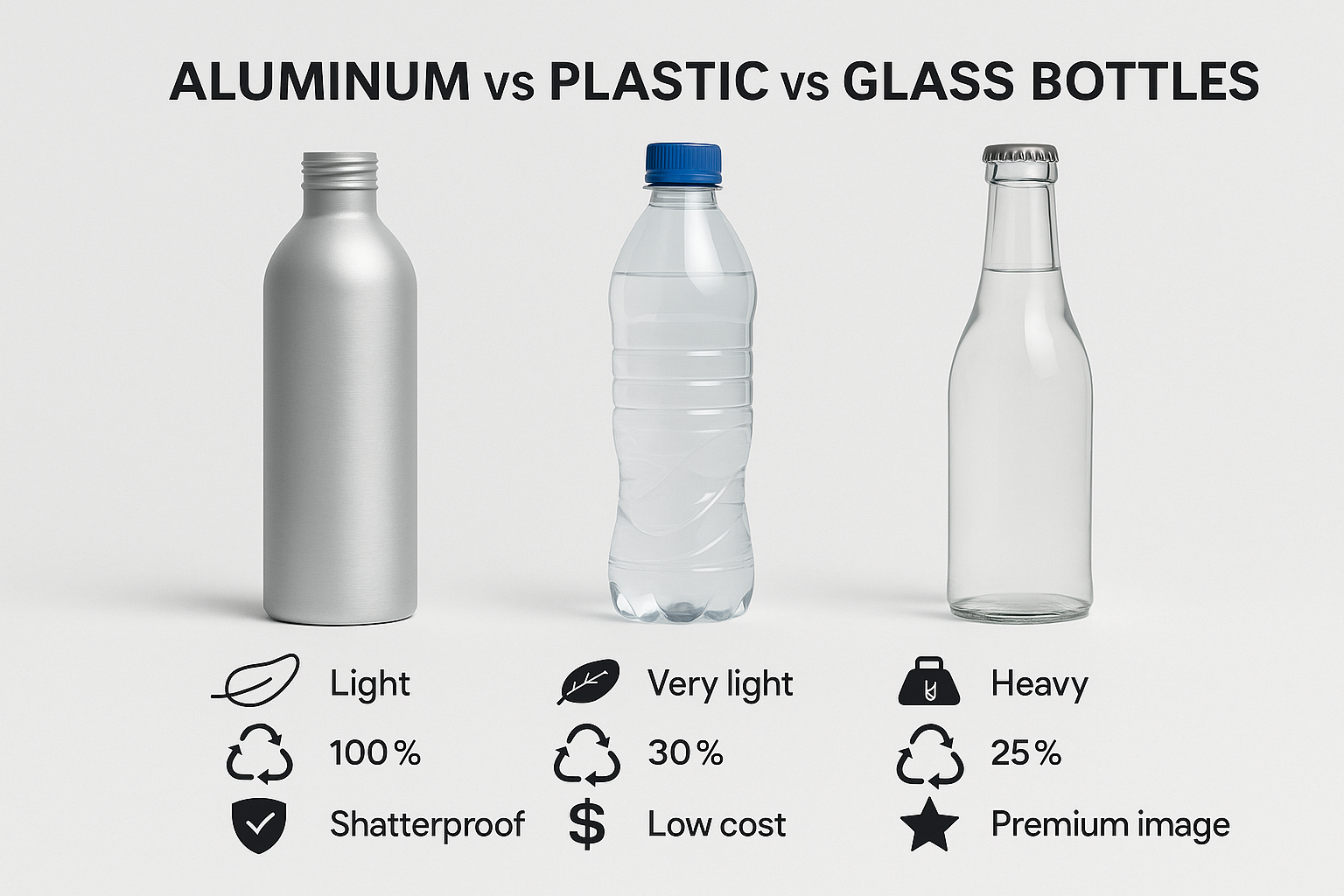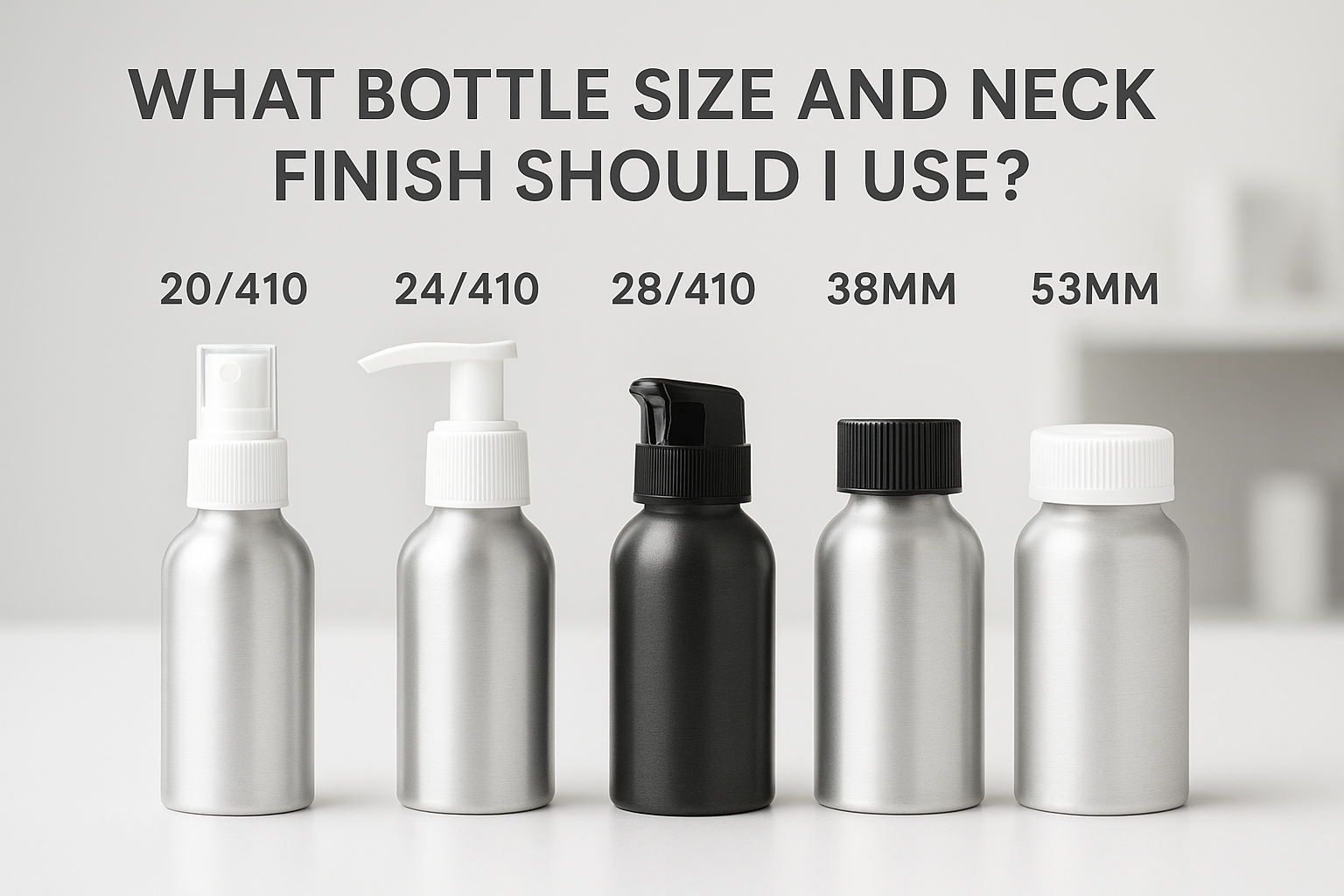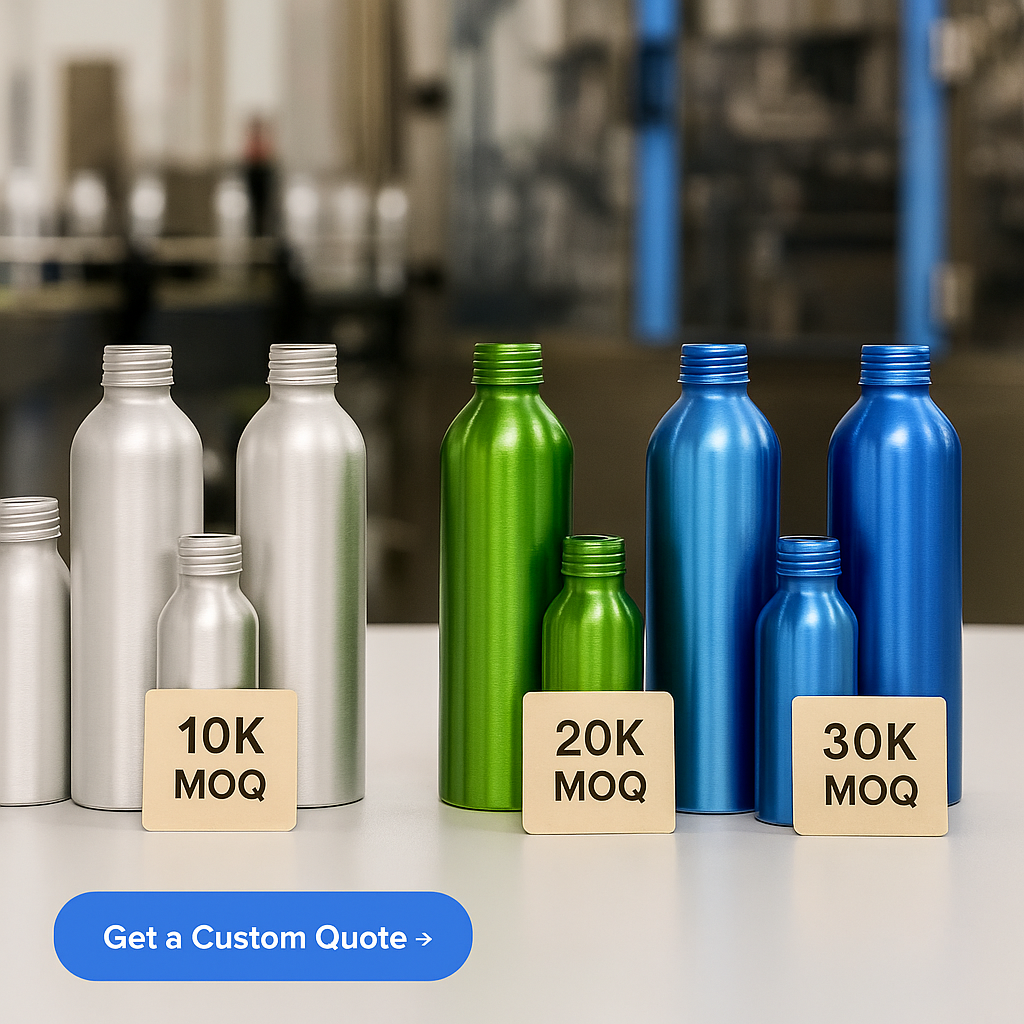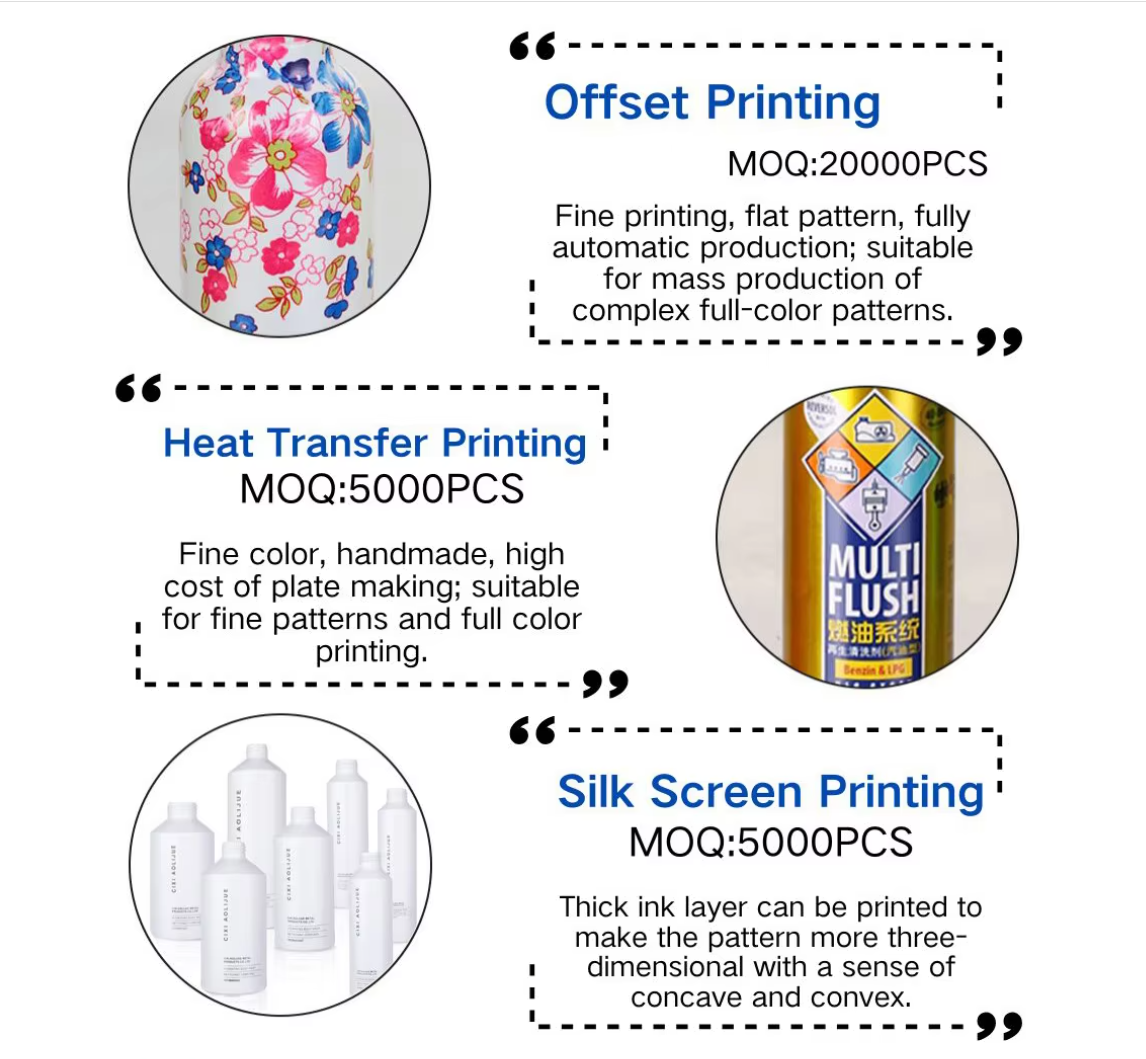
Selecting the correct supplier might greatly influence the success of your business goals. The right choice greatly affects success.
When choosing an aluminum bottle supplier in China, consider their experience. Take note of their production capacity and quality control. Also, look at their after-sales service. All these things help you receive dependable products. Timely delivery is important. It helps keep your brand strong. It keeps your customers happy.
Though this might look simple, knowing each part well really helps in choosing wisely. Over time, I've seen that a supplier meeting all criteria truly transforms things. A reliable supplier stands out. Finding the right fit is crucial.
Experience is crucial in choosing a supplier.True
Suppliers with more experience often ensure better product quality and reliability.
Quality control procedures are optional for suppliers.False
Quality control is essential to maintain product standards and customer satisfaction.
Why is Industry Experience Critical in Supplier Selection?
Selecting the best supplier is like picking a dance partner; it could very well lead to success or failure in your performance.
Industry experience is very important in choosing suppliers. It shows a deep understanding of specific needs. This experience helps avoid costly mistakes. Efficiency becomes better. Veteran suppliers offer reliable expertise. They help reduce risk. Communication becomes smooth and very effective.

Understanding Why Industry Experience Matters
When searching for suppliers, industry experience isn't just helpful; it's necessary. Suppliers with years of experience bring invaluable insights and expertise1 that can help businesses navigate complex challenges and avoid common pitfalls. It's like having a wise guide in a thick forest, showing you which paths to avoid. They know which materials last longer, ensuring your product's quality and longevity.
Reducing Risks With Proven Expertise
Imagine this: an experienced supplier has probably dealt with problems like yours many times before. They have developed solutions that are tried and tested, which means they can preemptively address potential problems. This understanding helps keep your products consistent and high in quality. For instance, their understanding of quality control processes2 is typically more robust, leading to fewer defects and more peace of mind.
Time Efficiency and Saving Money
An experienced supplier often means using their well-practiced methods and modern tools, leading to quicker results without losing quality. A supplier with at least 8-10 years of industry experience has honed their operations to offer faster turnaround times without compromising quality. This efficiency often translates into cost savings for businesses as it reduces trial-and-error costs3.
Better Communication and Teamwork
Communication matters in every relationship, including with suppliers. Those with industry experience understand the jargon, typical pain points, and expectations within the industry, facilitating smoother collaboration. I once worked with a packaging supplier who knew all about the specific needs of personal care products4. This made our teamwork easy and fruitful.
How Industry Experience Shapes Supplier Reputation
Trust takes time to build, and experienced suppliers have shown reliability through consistent performance. This earned trust is valuable when you want to grow or enter new markets. A well-known supplier can introduce opportunities you might not see.
| Criteria | Benefits of Industry Experience |
|---|---|
| Risk Management | Proven solutions for common challenges |
| Cost Efficiency | Reduced trial-and-error costs |
| Communication | Understanding of industry-specific needs |
| Reputation | Trustworthiness through consistent performance |
In conclusion, while factors like cost are crucial, industry experience offers a strong advantage when choosing a supplier.
Experienced suppliers reduce trial-and-error costs.True
They have refined processes, minimizing unnecessary expenses.
Suppliers with no industry experience ensure product quality.False
Lack of experience often leads to higher risks and errors.
How Does Production Capacity Affect Your Business?
Have you ever thought about how your production ability could really help or hurt your business success?
Production capacity is the heart of a business. It shows how well a company meets demand, controls expenses and keeps quality high. This supports deliveries on time. Customer happiness relies heavily on it. It directly affects profits and reputation in the marketplace.

Understanding Production Capacity
When I first entered the manufacturing world, "production capacity" seemed like just another complicated term. Quickly, I realized it was very important. Production capacity tells us how much a company can produce with its current tools and workers. Imagine a company that makes aluminum packages. It might handle bottles differently than cans because the machines for each type are different.
Production capacity is the maximum output a company can achieve with its current resources. It includes factors like equipment, workforce, and technology. For example, an aluminum packaging manufacturer5 might have different capacities for bottles versus cans due to machinery differences.
Impact on Delivery and Quality
One time, we were late in delivering laundry detergent, upsetting many customers. That was when I saw how important production capacity is for delivering on time and keeping products nice. For brands like ours, being late or having problems can really hurt our image. Good capacity helps us keep the quality high.
A well-aligned production capacity ensures timely delivery and product quality. For businesses like a laundry detergent brand, delays or leaks can harm reputation. An optimized capacity helps in maintaining consistent quality standards6.
Cost Management Through Capacity
Balancing what we can produce with what people want isn't just about staying on top; it also helps manage costs. I remember when our first semi-automated lines arrived - it changed everything. Labor costs dropped and efficiency improved, aligning production with demand.
Balancing production capacity with demand helps in reducing idle time and excess costs. For instance, investing in semi-automated lines can increase efficiency and reduce labor costs, benefiting overall financial health.
| Factor | Impact on Business |
|---|---|
| Equipment | Efficiency & Costs |
| Workforce | Flexibility & Output |
| Technology | Speed & Innovation |
Improving Customer Happiness
Matching production capacity to what the market wants not only makes things go smoother but also greatly makes customers happy. Happy customers mean they trust us. They stay loyal. On-time deliveries and high-quality goods are key. They are very important for long success.
By aligning production capacity with market demand, businesses can improve customer satisfaction. On-time delivery and high-quality products foster trust and loyalty, crucial for long-term success.
Ways to Optimize Capacity
After many experiments, using strategies like predicting what will be needed and having flexible production lines helps a lot. Watching market changes means we can change how we work quickly so we're always ready when demand shifts.
Employing strategies like predictive analytics and flexible production lines can optimize capacity. Understanding market trends allows businesses to adjust their operations7 accordingly, ensuring readiness for fluctuating demand.
Understanding these aspects of production capacity improves how we work and strengthens our business success by carefully managing resources to meet market needs; we keep our competitive strength paving the way for ongoing success.
Production capacity impacts delivery timelines.True
Aligning capacity with demand ensures on-time deliveries, boosting satisfaction.
Higher production capacity always increases costs.False
Optimized capacity can reduce idle time and lower operational costs.
How Does Quality Control Impact Supplier Reliability?
Do you sometimes ask why certain suppliers always bring exactly what you want, exactly when you need it?
Quality control supports supplier reliability. It guarantees that products always meet standards. This consistency reduces defects. Reliable deliveries build trust. Supply chain efficiency improves with quality. Risks related to bad quality decrease.

Always Having the Same Product Standards
Quality control involves setting strict rules to ensure products meet specific standards. Imagine ordering aluminum bottles for your eco-friendly soap and getting ones that are too small or leak. That would be terrible! Quality checks8 keep products meeting the right standards every time. This steady quality helps buyers like Matt trust our aluminum bottles. Matt depends on them. He really does.
Cutting Down on Defects and Returns
I remember a client had to send back a whole shipment because of a small flaw. This showed me how important good quality checks are. In industries like making medicine or electronics, good quality control9 cuts down mistakes. It saves time and reduces stress.
On-time Deliveries and Trustworthiness
Once, a big order was late because of production problems. It was a real lesson for us. Quality control is more than perfect products; it’s also about watching the production process carefully. Keeping tasks efficient helps meet delivery deadlines, which is a key indicator of reliability10. Meeting these deadlines builds trust.
Improving Supply Chain Flow
Organized quality checks make communication with suppliers easy. Finding problems early helps keep everything running smoothly, ensuring a smoother supply chain11. This approach gives us a more reliable supplier network, and clients like Matt can trust this network.
Growing Long-term Trust and Partnerships
Suppliers who focus on quality don't just send products; they create connections. Trust isn’t automatic—it's built by being consistent and meeting expectations over time, leading to long-term partnerships and opportunities for collaborative innovations12.
These parts of business are more than plans for me—they’re promises to do great work that strengthens relationships every day.
| Key Aspect | Impact on Reliability |
|---|---|
| Consistent Standards | Builds trust and reduces variability |
| Defect Reduction | Decreases returns and increases satisfaction |
| Timely Delivery | Meets client expectations |
| Efficient Supply Chain | Minimizes disruptions |
| Trust Building | Fosters long-term partnerships |
Quality control reduces product defects.True
Effective quality control measures significantly lower defect rates.
Lack of quality control boosts supplier reliability.False
Without quality control, product inconsistencies and defects increase.
Why Should You Care About After-Sales Service When Picking a Supplier?
Selecting a supplier seems like choosing a companion for your business adventure. More than just goods and costs, the support after the sale really strengthens or weakens the bond.
After-sales service is important when choosing a supplier. It gives ongoing support. It solves problems quickly. It increases customer happiness. This success in business and builds strong relationships over time. Really strong bonds.

The Role of After-Sales Service
Imagine buying a product and suddenly you're on your own with any problems. After-sales service13 steps in to help. It is the support system you get after buying something. This covers customer service, maintenance, training, and warranty services to keep things running smoothly. High-quality help quickly solves problems so your business continues without issues.
Key Benefits of After-Sales Support
- Better Customer Satisfaction: Quick and efficient problem-solving makes me happy. I am more likely to stay a loyal customer. Satisfaction grows.
- Less Operational Downtime: Fixes are quick, so operations continue smoothly. Everything stays on track.
- Longer Product Lifespan: Access to maintenance extends the life of products. Getting more value from investments is possible.
| Benefit | Impact on Business |
|---|---|
| Customer Satisfaction | Repeat business |
| Operational Efficiency | Minimized downtime |
| Product Longevity | Cost efficiency |
Evaluating After-Sales Service Quality
When looking at suppliers, I focus on their response time and technical support. Feedback is also important. Reliable companies have teams ready to help after buying.
Real-World Example: The Impact on Packaging
Consider Matt's laundry detergent brand. Choosing a supplier with excellent after-sales service for aluminum packaging means issues like leaks are solved fast. This reduces product returns and keeps the brand's reputation strong.
Questions to Ask Potential Suppliers
Before signing with a supplier, I ask about after-sales policies:
- How quickly do they respond to queries?
- Do they give training sessions for using products?
- Are there extra costs for maintenance?
Exploring these questions helps me choose a supplier who offers great products and support after purchase. To learn more about picking the right supplier, check out our detailed guide14.
After-sales service reduces operational downtime.True
Prompt issue resolution from after-sales service minimizes disruptions, maintaining productivity.
After-sales service has no impact on customer satisfaction.False
Effective after-sales support leads to higher customer satisfaction and repeat business.
Conclusion
Choosing an aluminum bottle supplier in China requires evaluating experience, production capacity, quality control, after-sales service, and pricing to ensure reliability and customer satisfaction.
-
Learn how industry insights from experienced suppliers can improve decision-making and enhance product quality. ↩
-
Discover how robust quality control contributes to product reliability and customer satisfaction. ↩
-
Explore how seasoned suppliers streamline processes to minimize costly mistakes. ↩
-
Understand the unique packaging requirements for personal care items to ensure product safety and appeal. ↩
-
Explore how the manufacturing processes for bottles and cans differ, affecting production capacity. ↩
-
Discover why maintaining quality standards is crucial for business reputation and customer satisfaction. ↩
-
Learn how predictive analytics can optimize manufacturing operations and align production with demand. ↩
-
Learn how consistent product standards foster trust and ensure reliability in suppliers. ↩
-
Discover how quality control reduces defects and enhances supplier reliability. ↩
-
Explore how quality control ensures timely deliveries, boosting supplier reliability. ↩
-
Understand how effective quality control enhances supply chain efficiency. ↩
-
See how prioritizing quality control leads to long-term business partnerships. ↩
-
Explore why robust after-sales support is crucial for customer retention and operational success. ↩
-
Gain in-depth insights into evaluating suppliers based on multiple criteria including after-sales service. ↩






